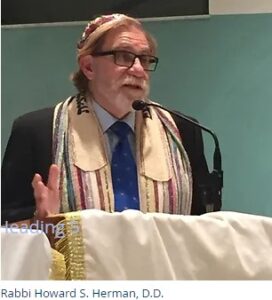The 7th day of the Festival of Sukkot is known as Hoshana Rabba, which in Hebrew means the great saving according to Jewish belief, Yom Kippur is the great Day of Atonement. But so great is the compassion of God that if there are any sins left over to be forgiven, they can be redeemed on Hoshana Rabba. It is a way of saying that the gates of mercy are never closed. There’s always one more opportunity to start over again.
The principal behind Hoshana Rabba represents a very important insight into human nature we do not suddenly get up one morning and turn over a new leaf. It takes time and patience to develop a new orientation and to withdraw from old habits. Hoshana Rabba is highly realistic. It says to us: never despair. If you took two steps forward yesterday and you fell one step back today, you’re still ahead by one. A mistake is only a mistake, it’s not the final defeat.
An irate employee went to the HR and carefully counted the money in his pay envelope. It is $1.00 short! What’s the meaning of this? The person in HR checked the record sheet and smiling broadly replied, last week we overpaid you a dollar. You didn’t complain about the mistake then, did you? An occasional mistake I can overlook, answered the angry man, but not two in a row.
in a sense, the spirit of Hoshana Rabba is expressed in this story. We are just human beings. We do good and we do bad. The badness can be forgiven; The goodness must not be overlooked. In making judgments on others, we should think in terms of Hoshana Rabba. Like God, we must give everyone another chance to save himself or herself.
In the book of Song of Songs Rabba chapter 5 it says: Open the door of repentance only the width of the eye of a needle and God will open it wide enough for carriages and wagons to pass through.

